A Synthesis of Educational Interventions for Athletes: Enhancing Performance and Wellbeing Through Targeted Programs
In the demanding world of competitive sports, the pursuit of peak athletic performance is often the primary focus, yet this singular focus can sometimes come at a cost 1–9. It is increasingly clear that achieving optimal results requires a more holistic approach. Athlete well-being, encompassing physical and mental health, is not merely a desirable outcome but a crucial determinant of success 1–3. Areas such as sleep, concussion management, and nutrition play a significant role in an athlete’s overall health and their ability to perform at their best 10–13. These three areas are not only critical to athlete well-being but also present unique challenges which researchers continue to try overcome by providing education to combat these challenges 1 2 12 13
A TL;DR insight into these areas:
- Sleep is essential for recovery and physiological restoration, but athletes often struggle with sleep disturbances due to intense training schedules and competition-related anxiety 12 14 16. Insufficient sleep can lead to decreased performance, cognitive impairments, and increased risk of illness 3 14 17–21.
- Concussions are a significant risk in sports, and effective management requires more than just awareness of the signs and symptoms 13 22. The challenge lies in changing attitudes and behaviours, promoting a culture of safety, and encouraging athletes to report concussions 13 22.
- Nutrition is a cornerstone of athletic performance, providing fuel for training and recovery, but many athletes fail to meet optimal nutritional guidelines 1,23-29. This is often due to a lack of knowledge, time constraints, and various other barriers, including the influence of popular diet trends and nutritional misinformation 2 5 15 24 26.
Recognising the importance of these factors, there is a growing emphasis on preventative strategies such as education to address these challenges proactively 13 30. While there is a general consensus regarding the potential of educational interventions to improve health and well-being, the evidence specifically for athletes is inconsistent 13 31 32. Although many studies have reported a significant improvement in knowledge following an educational intervention 33, the application of knowledge into practice remains a challenge 1 2 26 33. There is a need for further studies on the design and delivery of educational interventions that can promote long-term behaviour change and improve both well-being and athletic performance.

Existing literature shows that educational interventions can improve knowledge and practices in several populations 10 12 33], but the long term efficacy of these interventions is not well known 11 33-37. There are inconsistent results in studies that focus on athletes 13 31 32. For example, studies evaluating sleep hygiene education in elite athletes showed mixed results with some demonstrating increased total sleep time, while others showed no improvement 10-12 34-39]. Similarly, nutrition education programs have been shown to enhance athlete knowledge; however, there are inconsistencies regarding whether this translates to improved dietary behaviours 23 26 32 33. Concussion education programs also have shown varying results in terms of knowledge and behavioural changes among athletes 13. These inconsistencies highlight significant gaps in the literature, particularly regarding the following:
- How educational interventions are designed and delivered, and how these factors impact outcomes.
- The need to tailor educational programs to meet the specific needs of athletes.
- The long term effectiveness of these interventions in promoting sustained behaviour change.
This article aims to provide a comprehensive synthesis of the existing literature on educational interventions for athletes, focusing on sleep, concussion, and nutrition. The aim is to identify key elements of effective program design, delivery methods, and strategies to promote long-term behaviour change. By bringing together the evidence from multiple sources, this article seeks to inform practice and guide future applications in this field.
Designing Effective Educational Interventions: A Deep Dive for Academic Researchers
Educational interventions are a key strategy for promoting positive change across various domains, from sports performance to health behaviours. However, the effectiveness of these interventions hinges on careful design and delivery. Thus let’s explore the critical factors that influence the success of educational interventions, drawing on insights from diverse research studies.
Core Components of Effective Educational Interventions
A robust educational intervention considers several key elements:











Responses